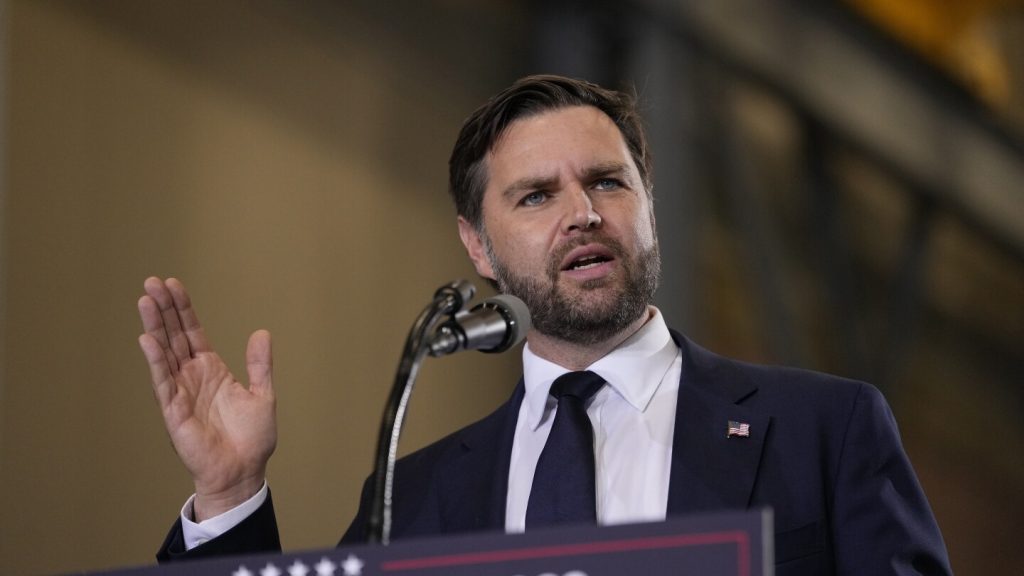In Auburn Hills, Michigan, Republican vice presidential candidate JD Vance avoided stating who he believed won the 2020 presidential election, a topic that has been central to false claims made by his running mate, Donald Trump. During a debate with Democrat vice presidential candidate Tim Walz, Vance refused to acknowledge Joe Biden’s victory in 2020, instead focusing on the upcoming election in 33 days. Vance emphasized his desire to remove Kamala Harris from office and implement common-sense economic policies, as well as the importance of secure elections in the future, stating that he believes the 2024 election will be the safest and most secure.
Trump’s continued denial of his 2020 election loss has been a significant aspect of his campaign, and candidates seeking his support have been expected to embrace this stance. Trump’s efforts to overturn his loss resulted in federal criminal charges against him, to which he has pleaded not guilty, and created a rift with his former running mate, Mike Pence. Trump pressured Pence to overturn Biden’s election win during the ceremonial certification of the results on January 6, 2021. When Pence refused, rioters stormed the Capitol, with some chanting that they wanted to “hang Mike Pence.” Walz brought up this pressure campaign against Pence during the debate, highlighting the reason Vance was on stage instead of him, and also questioned Vance about whether or not Trump won the election.
Vance continued to evade a direct answer to the question about Trump’s victory in the 2020 election, emphasizing his focus on the future rather than the past. Walz criticized Vance’s response as a “damning nonanswer,” highlighting the importance of addressing the issue of the previous election. The debate between Vance and Walz showcased the ongoing division within the Republican Party regarding the legitimacy of the 2020 election results, with some candidates choosing to align themselves with Trump’s false claims while others prioritize moving forward. This rift has significant implications for the party’s future direction and the ongoing influence of Trump in Republican politics.
Vance’s reluctance to acknowledge the outcome of the 2020 election reflects the broader challenges facing the Republican Party in navigating Trump’s continued influence and the implications of his false claims. By avoiding a clear stance on the election results, Vance is aligning himself with Trump’s base and signaling his loyalty to the former president. This strategy may help Vance secure support from Trump supporters but could alienate more moderate voters and perpetuate the division within the Republican Party. With the 2024 election on the horizon, the Republican Party faces a critical juncture in defining its platform and addressing the legacy of Trump’s presidency.
The debate between Vance and Walz underscored the deepening divide within the Republican Party over the issue of the 2020 election and Trump’s role in the party’s future. Vance’s refusal to acknowledge the election results and his focus on the upcoming election serve as a reflection of the ongoing challenges facing the party as it grapples with Trump’s legacy and attempts to chart a path forward. The consequences of this internal conflict are likely to shape the party’s trajectory in the coming years, with critical implications for its ability to attract a broad base of support and compete in future elections. As the 2024 election approaches, the Republican Party faces a critical moment of reckoning in defining its identity and direction in the post-Trump era.


